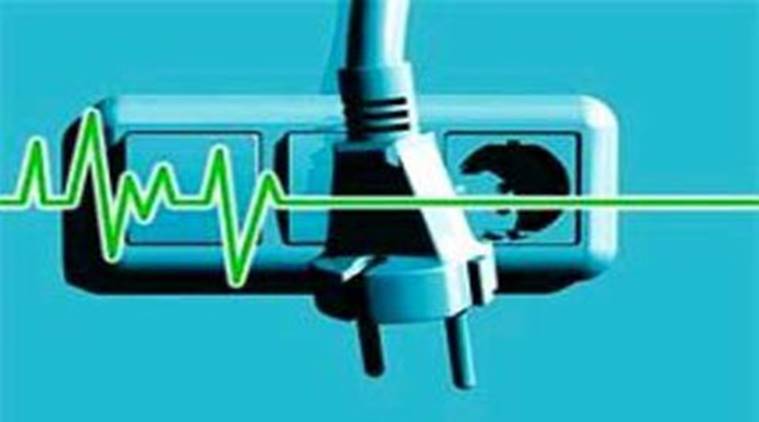 Pune: Passive euthanasia was legal even before the March 9 order, but a specific permission from the High Court was required before pulling the plug. (Image used for representational purpose)
Pune: Passive euthanasia was legal even before the March 9 order, but a specific permission from the High Court was required before pulling the plug. (Image used for representational purpose)
On March 9, the Supreme Court allowed terminally ill patients to opt for passive euthanasia, including the right to withdraw themselves from life-support measures. But even before that, instances of patients and their families declining life-support interventions were not uncommon in hospitals of Pune, in cases where there was no hope for the patients to survive. Passive euthanasia was legal even before the March 9 order, but a specific permission from the High Court was required before pulling the plug, especially in cases where the patient was either in coma or otherwise not in a position to make a choice. But this was a requirement only for those who had already been put on life-support systems.
Patients, or family or guardian in case the patient was incompetent, always had the right to refuse life-support mechanisms or other aggressive interventions in case there was no hope for survival. At the 550-bed Ruby Hall Clinic, for example, more than 5,000 patients were admitted to the various ICU units between January and December last year. Of these, 77 patients opted not to be put on life-support last year, according to doctors at the hospital. Some of them sought discharge and opted not to continue in the hospital. “They did not want aggressive treatment and sought palliative care instead,” said Kapil Zirpe, head of the neuro-trauma unit at Ruby Hall, and president of the Indian Society of Critical Care Medicine.
Similarly, doctors at the 350-bed Jehangir hospital said nearly 20 per cent of the 415 terminally ill patients who died at the hospital last year (the number of admissions was much higher) had given their consent for ‘end of life care’, opting not to go on life-support. “At our hospital, ‘end of life care’ practice is a concept that allows patients to die with dignity once medical care becomes futile,” said Kayanoosh Kadapatii, in-charge of ICUs at the hospital.
Kadapatii said in cases where medical care becomes futile, it was better to let patients spend quality time in their last moments. “Take the example of a terminally ill cancer patient who requires mechanical ventilation. Giving artificial support and dialysis when the kidneys are also failing may prolong the suffering. The treatment is unlikely to improve the quality of the patient’s life. Here, we counsel the relatives as the patient is not in a position to decide. We have joint meetings and in such cases withhold therapy with the relatives’ consent. The ‘end of life care’ form is then given to relatives. The form takes their consent for withholding life-prolonging interventions. However, comfort care measures, pain relief and feeding is provided,” she said.
Doctors said in many advanced countries, as much as 65 to 70 per cent of all ICU deaths are through end of life care. While accurate data was difficult to get for Indian hospitals, interviews with heads of ICUs at some of the top hospitals in the city revealed that not more than 1 and 2 per cent patients admitted in the ICUs had been opting for such care. In 2012, a study by Indian Society of Critical Care Medicine, which surveyed 4,038 adult patients in 120 ICUs across hospitals all over the country, had shown that 183 terminally-ill patients had sought a discharge. Some of them did so against medical advice. “This group is most likely to be among those who would opt for palliative care instead of active medical intervention,” said Zirpe. He said another such study, which will collect data from 300 ICUs, will be conducted this year.
“End-of-life discussions are difficult for all the people involved. Up till now, the law was not very clear. But at some point, relatives have to be informed that the patient who is in coma or is critically ill is unlikely to survive. With no clear cut guidelines, it was so far difficult for them to take a decision. For the medical community, it is even more challenging as doctors are trained to save lives,” said Zirpe.
Doctors at the 1000-bed Deenanath Mangeshkar hospital said roughly about one per cent of the people admitted in its ICUs every year ask not to be put on active medical interventions. Prasad Rajhans, chief intensivist at the hospital, said the Supreme Court order was welcome step but doctors as well as patients were waiting for greater clarity in this very sensitive matter. “This SC order is not a legislation yet and even among doctors, there is a need to create awareness. Once on artificial ventilation, it is difficult to withdraw the support but active medical intervention can be withheld after counselling relatives. These are all very sensitive matters and decisions will have to be taken on a case to case basis,” said Rajhans.
A similar trend was reported from KEM Hospital. A doctor at the hospital said of the nearly 3,500 patients that were admitted to the various ICU units every year, between 1 and 2 per cent were opting for palliative care.